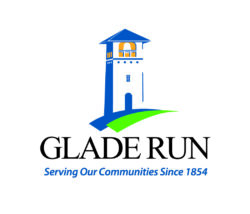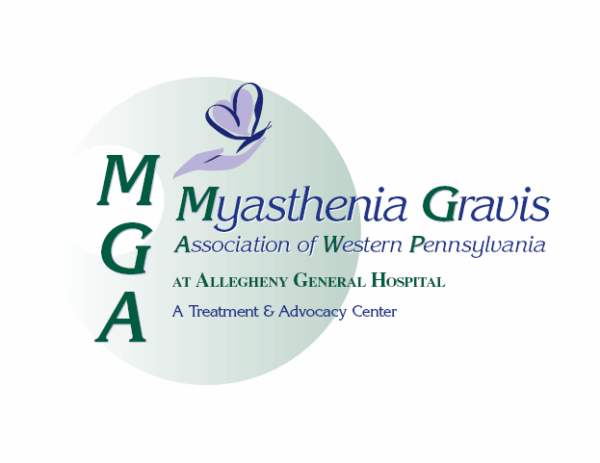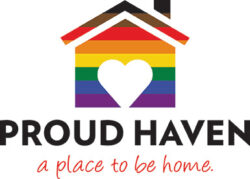Humanitarianism: Ideas and Inspiration
Two Ways to Find Inspiration
Partner with a Nonprofit Organization
What better way is there to create an impactful, humanitarianism-based solution that can be deployed to address a real-world problem than to hear issues directly from those facing them every day? We’ve gathered information from nonprofits in Pennsylvania to serve as inspiration for ideas to submit to the Challenge. If you are interested in connecting with any of the nonprofit organizations below, contact Brad Zdenek at baz122@psu.edu.
Nonprofit Organizations that Need Your Help
 Glade Run Lutheran Services
Glade Run Lutheran Services
Mission
Founded in faith and grounded in excellence, we empower individuals to experience personal wellness and growth.
About
We serve children, adults, and families; primarily individuals and families struggling with mental health issues and/or autism or other intellectual or developmental disabilities.
Most Pressing Needs/Challenges
After adequate funding, our most pressing need is access to mental health services and help eliminating the stigma surrounding mental illness and autism.
Goals
Our goals are program expansion, including additional school-based mental health partnerships, a new physical school site, I/DD programming, etc.
Community Impact
Glade Run is a tenured and respected organization that has expanded over the years to serve Western PA with innovative and impactful services. An example of our innovative programming (which supports other programs) is Glade Run Adventures, a therapeutic equine, animal and horticulture program. This unique program utilizes horses, other farm and domestic animals, and the natural environment for highly individualized programming designed to build social and communication skills, self-esteem, emotional management skills, and more.
 Identiversity, Inc.
Identiversity, Inc.
Mission
If being gay isn’t a choice, then why are people gay? Wouldn’t she be pretty if she dressed like a girl? Do people pretend to be bisexual because they are promiscuous? Can’t transgender people just be treated for mental illness instead of transitioning? What in the world is intersex and is it really a thing?
Most people have questions but not a clue as to how to get the answers to these questions. Sex ed in school never addressed these and other questions that are emerging about gender and sexual identity.
Our mission is to provide trustworthy educational resources about gender and sexual identity. We develop and provide objective, science-based education about real people and real identities to encourage real learning.
About
We serve those with questions but nowhere to turn for answers — parents, grandparents, friends, workplace managers. There is a special need for understanding among health care workers and those providing human and social services, such as youth organizations, public health departments, caregivers, etc. People want to understand but have no trusted, reliable source for information that they can easily access.
We are serving people that need and want to learn about gender and sexual identity.
Most Pressing Needs/Challenges
We primarily provide our resources via our digital learning hub, identiversity.org. Our mission drives us to provide 24-hour/7-day-a-week access to resources for anyone and everyone. Our biggest challenge is to create products and services that can be marketed to those that can and will pay — institutions and corporations — to underwrite the cost of the publicly available, free learning hub.
Being a small organization, it is difficult to customize or create specialized programs for each corporation and institution. We have a wealth of curated information and resources about gender and sexual identity that could be used as fundamental building blocks for seemingly customized educational packages or to create other “products” that can generate earned revenue to support our mission. Our material has been carefully curated to only include evidenced-based research, published in highly credible journals or resources based on the same. We have also found that pairing this fact-based information with stories about real people in all of our lives helps the learner to convert this information into real knowledge and understanding.
Our current most pressing need is that we have confirmed a high need for this education with organizations, both for profit and not-for-profit, but we have a very small staff and budget to create products to easily meet this market need. We do have a wealth of information that has been organized on our website that could be re-packaged and/or tailored to meet specific education needs for these organizations.
Goals
Identiversity was founded to encourage understanding in the community about LGBTQ people through education based on science and credible research, coupled with the shared lived experiences of LGBTQ people.
Our specific near-term goals are:
- Maintain and grow our educational resources to meet the needs of the community in an interesting and intriguing manner.
- Encourage new learners to use the identiversity.org site, growing the number of new users to the site to over 1M each year within 5 years.
- Encourage repeat visits to the site to be 100,000 per day within 5 years.
- Develop revenue-generating spin-off products and services to create a sustainable business model within 2 years, allowing for growth of the learning platform and supporting costs. (Examples of products/services for the institutional/corporate sector include easy access look-ups for client facing industries such as healthcare, special use of the curated information for institutional/corporate education, etc.)
Community Impact
There is no other source for gender and sexual identity education that is available to the public. For institutional and corporate organization’s continuing education, there are limited to no sources of education, except custom-developed content. Over the past few years, we have implemented specific educational sessions using our platform. Given the breadth of applications, we are including a few different examples.
Big Brothers Big Sisters of Central Carolinas: This organization, like many human services nonprofits, had no educational resources about LGBTQ+ youth even though many of their services are provided to LGBTQ+ youth. The identiversity team presented to the staff an introductory seminar, Spectrum of Identities: The Basics. Our Quick Lessons were then distributed to staff, one a week for several weeks, followed by the interactive session, Learning with Identiversity. The CEO, the HR leader and the staff demonstrated support for the education and the approach to a very sensitive yet needed topic. The HR leader for Big Brothers Big Sisters shared, “I feel this was a very effective, supportive and empowering way to learn.” We are now working with BGBS to support their ongoing education needs about LGBTQ+.
Large, public university freshman seminar series: The identiversity.org website, learning activities, and the Spectrum of Identities: The Basics webinar was used to address the topics of gender and sexual identity in the required freshman seminar. A pre- and post-assessments were administered, showing significant positive movement on all measured indices, indicating a greater awareness of the specifics of gender and sexual identity and a greater appreciation to learn more and work with colleagues that identify as LGBTQ+. Our materials have been endorsed by the university and are now in use for freshman seminars and for faculty/staff education.
Use of the website, identiversity.org: There are no resources like this available for the public, or for any of our great public service employees such as teachers, law enforcement, or other people that serve the full spectrum of our community. As an example of the impact, Amanda, a 6th grade teacher in Ohio, shared, “I absolutely love how informative and specific the language is. We’ve learned about a lot of these terms through professional development at school, but I haven’t seen a website like this dedicated to breaking it down. This is an incredible educational tool.”
 Myasthenia Gravis Association of Western PA
Myasthenia Gravis Association of Western PA
Mission
The Myasthenia Gravis Association of Western Pennsylvania (MGA) is a nonprofit health care organization that helps individuals coping with this chronic, life-limiting muscle weakness disorder. MGA was founded in 1955, and it is one of the oldest and largest Myasthenia Gravis Associations of its kind in the country. MGA’s mission is to address the medical, social, and emotional needs of all persons affected by Myasthenia Gravis and to disseminate educational information to persons with Myasthenia Gravis, their families, the medical community, and the general public.
About
Myasthenia Gravis is a chronic, auto-immune neuromuscular disorder that causes weakness of the voluntary muscles. The symptoms can make even the most basic functions such as walking, talking, chewing, swallowing, and even breathing very difficult. It affects one in every 6,000 people regardless of age, race, or gender. There is no known cause or cure for this disorder, but there is hope through continued research and treatment. Myasthenia Gravis is often called the snowflake disease, as it manifests so differently in each person. Myasthenia is a Greek word for “muscle weakness” and Gravis is Latin for “serious.”
Most Pressing Needs/Challenges
MGA currently serves more than 500 patients annually from 26 different counties in Pennsylvania as well as portions of New York, Ohio, West Virginia, and Maryland. They also respond to calls and emails from all over the United States. Because many of the patients they serve are not in their close geographic region, one of their biggest concerns is how to interact with them as “distance learners” and educate them about Myasthenia Gravis. This issue has been magnified due to the COVID-19 pandemic. Because Myasthenia Gravis is an auto-immune disease, a patient with Myasthenia Gravis is considered very high risk for negative outcomes if they would contract COVID-19. This has caused many of our patients not to be able to come for their medical visits in person, adding additional challenges to managing their care properly.
Goals
Develop a robust online and in-person education series for patients and families dealing with Myasthenia Gravis, as well as for the community of healthcare providers that may have very little knowledge about Myasthenia Gravis.
Accomplishing this goal would impact many people in the region and across the country. Because Myasthenia Gravis is a relatively unknown disease, people who are newly diagnosed with the disease may not have a lot of resources to pull from in order to learn more about it. In addition, physicians and other healthcare providers who are not dealing with the disease on a regular basis may have very little knowledge on how to best support a patient with the disease. Having immediate resources available to meet these types of needs would be a great addition to what our program is currently offering.
Community Impact
The care team at MGA works closely with our patients to help them manage their disease through medication, diet, and medical management. One of our patients has taken an active role in the management of his disease with the help of the MGA team. Before he was diagnosed with Myasthenia Gravis, this patient was very active, even running a marathon. After his diagnosis, this patient was determined to run another marathon. During that race, he wore a t-shirt which said, “I have MG, but MG doesn’t have me.” This patient is dedicated to raising awareness for MGA, an organization that has helped him manage his disease and accomplish his goals.
P.O.O.R.L.A.W. — People of Origin Rightfully Loved and Wanted
Mission
To educate the people of Hazelwood, PA, about social, educational, economic, and criminal justice and give residents all the resources they need to build a safe and thriving community
About
P.O.O.R.L.A.W. serves the people that no other organizations want to work with.
Most Pressing Needs/Challenges
Finding staff/volunteers is our biggest challenge.
Goals
Our goal is to build our organization on a solid foundation so that the residents from the Hazelwood community do not get displaced from our community and to ensure that residents benefit from job opportunities inside our community.
Community Impact
P.O.O.R.L.A.W. grew out of the wrongful conviction of Terrell Johnson. Terrell served 18 years in prison for a wrongful conviction, and the founders of P.O.O.R.L.A.W. fought for and won his freedom in 2012. Since that time, P.O.O.R.L.A.W. has focused on addressing the economic disadvantages suffered by low-income and disfranchised youth living in the Greater Hazelwood community.
 Proud Haven Inc.
Proud Haven Inc.
Mission
Proud Haven’s mission is to provide a safe shelter for lesbian, gay, bisexual, transgender, queer/questioning, intersex, asexual, and beyond (LGBTQIA+) persons, particularly youth (ages 18–25), experiencing homelessness in Pittsburgh. We also provide emotional support and resources to help LGBTQIA+ youth develop the skills needed to live independently. Our goal is to be a leading resource for shelter and support services that improve the quality of life for LGBTQIA+ youth who are experiencing homelessness as well as an advocate for the LGBTQIA+ population as a whole.
About
We primarily serve LGBTQIA+ youth and young adults in Allegheny County. But we are not limited to this demographic. We have helped older LGBTQIA+ folx, as well as people from other PA counties and even Ohio.
Most Pressing Needs/Challenges
Our most pressing need is funding. Between the change in tax laws last year and COVID this year, our funding has decreased tremendously. We need to find new ways to make Proud Haven known to the larger community, as well as call attention to the needs of the people we serve.
Goals
Our near-term goal is to secure our own space for housing people. Right now we pay for emergency stays in hotels and that is too expensive to maintain as our model. We have the opportunity to rent the apartment above our office, which could provide 3 permanent beds for us. Right now we need to raise enough funds to pay that lease for a year and furnish the space. In the longer term, we want to acquire a large space for this purpose. We already know that 3 beds are better than none, but we really need more than that to fill the needs of LGBTQIA+ persons experiencing homelessness.
Community Impact
We re-opened our office space in early March. We are presenting youth programming 4 days a week, and we have seen steady attendance since March. We enforce the wearing of masks and social distancing. The youth really appreciate a safe place to gather. We provide activities as well as food during this time.
Explore Humanitarianism Project Ideas
- Imagine an AI–enabled system to help identify humanitarian crises before they grow out of control.
- Utilize AI to improve cybersecurity for individuals, helping them secure themselves in a digital world.
- Create an AI system to help assess and report on the fairness of a legal system for the most at-risk members of a society.
- Think about how AI can help direct critical resources to those in the most dire need.
- Leverage AI to provide disaster-recovery personnel with the information and predictions they most need at their fingertips.
- Use AI with weather and agricultural data to predict and prevent famines wherever they may occur.
- Create an AI–enabled system to monitor human rights violations across the globe.
- Design an AI system to help asylum seekers make their way to a safe location and find desperately needed services.
- Build a system to identify, track, and ultimately prevent human trafficking.
- Imagine an AI–powered system that uses satellite imagery to help disaster-relief organizations quickly find their way through damaged infrastructure.
- Create a tool that helps first responders locate survivors after a disaster.
- How can an AI tool assist with disinformation management on social media?
- Can AI predict the best ways and tools to help in different disaster situations?
- Could AI empower a financial literacy effort to reduce poverty, reduce debt, and allow better access to educational opportunities?

